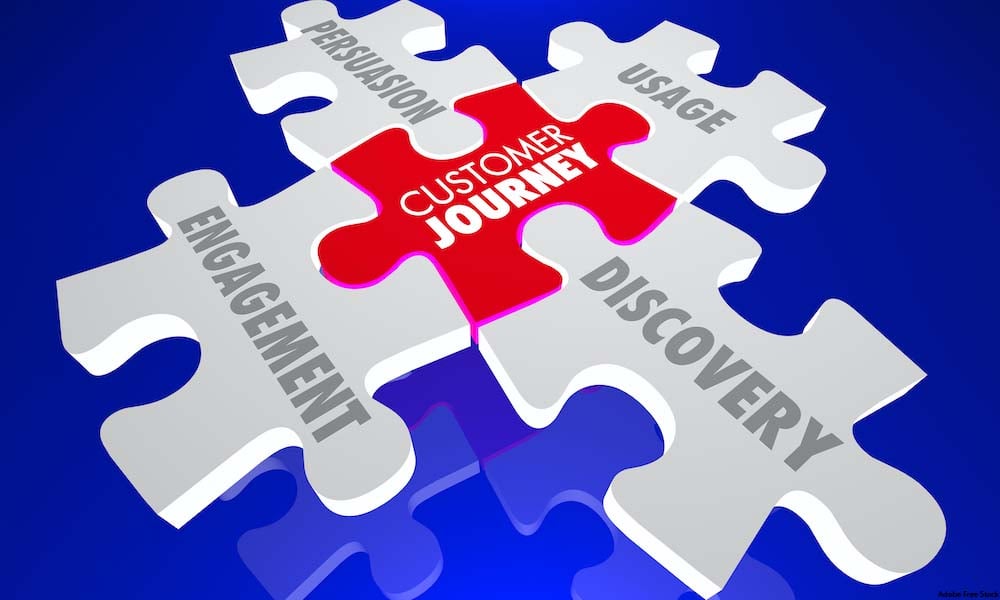Technology
7 Ways To Use A Point of Sale System In Your Small Business

Small businesses need to use systems that fulfil more than just one solution. POS systems do a lot more than processing sales transactions, so let’s look at how your small business could make better use of the software. We’ll start with a quick explanation of what a point of sale system is and what it’s replaced for startups considering a POS system.
What Is A POS System?
Investopedia explains the POS system as the point at which the purchase occurs i.e. the sales transaction. Before the POS, a store would have a cash register, and you would hand over cash to pay for your purchase. POS terminals now take care of the payment process. Mobile POS devices are perfect for bringing the purchase transaction to the customer rather than the customer needing to go to a POS terminal wherever that may be located in the store or restaurant.
Benefits Of A POS System
There are many things that you can do by using this technology. Not only is it useful for processing transactions, but it also provides:
- accurate reports
- real-time data
- assist in inventory management
- automate many of the time-consuming manual tasks
1. Accessibility and flexibility
Cloud-based systems store data on the Internet, allowing people to access it at any point and from any location.
With the right point-of-sale system for small business like LightSpeed you can access key data even when you’re out of the office.
Most business owners of small businesses are on the move a lot, so they’re not likely to remain in-store to oversee activity every minute of the day. This is where the POS is valuable – with a cloud-based system, business owners and managers can access and run the business even when they aren’t physically present in the workplace. The main benefit is the access to key information regarding business operations, including staff, customers, number of sales, and more.
2. Successful inventory management
Wouldn’t you want to know at a glance how many items you have in store? The just-in-time sales process relies on you know the status of inventory. The real-time data empowers you to restock before you run out of products.
Plus, as you stock up on inventory, you can update it into your sales and marketing strategy. Manual inventory tracking is challenging and time-consuming. With the POS, you can scan the item manually or automatically enter the quantities and create a smooth and accurate inventory process for your business.
Not only can you track the number of items you have in-store, but you can also get actionable data on things such as:
- Peak and off-peak hours
- Best selling and worst selling products
- Speed of spending of a certain product
- Low stock count alerts and so on
3. Customer data for marketing & sales strategies

POS systems can also provide useful data about your consumers. Like all software, you need to put good data in to get good data out. With a POS system, you can document all sorts of helpful information about your customers to improve your marketing and sales strategies.
Some of the data you can get your POS system to store includes.
- names
- phone numbers
- emails
- addresses
- past purchases
- preferences
With consumer data, your email marketing can be personalized and the email content unique. Plus, you can organise your PPC campaigns, so only the more relevant adverts are shown to your customers based on their preferences and purchases. Is amazing for your marketing plans and strategies. For example, you can personalize your mobile SMS messages or do an SMM (social media marketing) campaign that hits the mark with your customers, so they take action by visiting your store or shopping with you online.
Think of various incentives that would make people come back to your shop. Better yet, think of this as an opportunity to build customer loyalty.
Once you know who your customer is, what they bought from you before, and where to reach them, things get much easier for you. You can recommend similar products, inform them of discounts on their preferred items, and entice them to come back by introducing your latest offerings.
4. Employee management
Your employees’ work can greatly affect your small business. They are the people handling your money and communicating with consumers. So many things can go wrong no matter how great your product is or how amazing your plans were for the business – unless you manage your employees well.
According to Microsoft, 90% of Americans use customer service as a vital factor in deciding whether they’ll use a company – or stay away from it. This makes your employees an essential thing to oversee and manage.
Without tangible data to use, this can be impossible to do. POS systems go a long way in making employee management happen for you. With the right system, you can track your employees’ sales, hours worked, and basically, their success in the workplace.
Such data can be beneficial because it helps you prevent theft and shows you how well your employees work. For example, based on how much an employee sells and the comparison with other members of your staff, you can decide on their promotions and status within your company.
You can see if someone is slacking off by checking the hours worked and look for new ways to motivate them.
Similarly, you are aware that the employees are performing over and above what’s required to reward them.
The data will also allow you to learn about peak hours in your store, therefore telling you about the need for more employees at a certain time. It makes many things easier, from building accurate schedules to providing the necessary training to motivating your employees to work better.
5. Easier and quicker payments
A simplified and easy-to-use POS system makes payment faster and more efficient. Staff will simply select the product from the catalog, and the system will automatically do the rest – calculate the price, remove the item from stock, and prepare an invoice.
Depending on the terminal and integrations, customers may have many options for payment. For example, they can choose to pay by cash or different credit and debit cards.
In the 2019 Diary of Consumer Payment Choice study, the Federal Reserve came up with 42% of people who prefer to pay with debit cards, followed by 29% who preferred credit cards.
6. Simplified and more accurate purchasing
Managing supply in real-time empowers your business to buy when the price is right. In addition, smarter purchasing can improve the margin between what you purchased the product and what you sell it for. Plus, if you’ve not got much storage room, you can use the just-in-time inventory process.
The POS will track orders and purchases, and you’ll know exactly what your store needs and when. You can set up alerts before an item runs out of stock based on how frequently it sells. Likewise, you can set alerts for items that are about to expire to take action and try to sell them faster.
Basically, a POS system will provide you with data that minimizes expenses and maximizes profit by helping you determine your future ordering requirements.
You may prefer to automate orders instead of bothering to go through all products separately. Since the system organizes and stores invoices also, you’ll always have useful information about the suppliers at your disposal.
7. Enhanced security
With a quality POS system, data is better secured from intrusions. You can use various features to boost the security of payments and data in your system. For example, you can choose double user authentication, set codes for people, back up and protect your data in a cloud-based point-of-sale, etc.
Final Thoughts
Like most software, the POS can do a lot more for your business than its core feature. The decision to move to a POS system may be its sales transaction processing; however, knowing what else it can do may be the tipping point to getting it.
According to Retail Consulting Partners, 41% of retailers are already changing or planning to do so.



